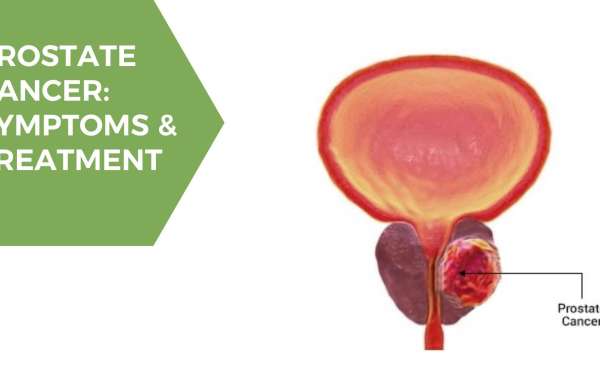The male reproductive system includes the prostate gland. It is a tiny gland, the size of a walnut that surrounds the male urethra and is located near the base of the urinary bladder. It is simple to digitally inspect it via the rectal tube. The prostate gland is susceptible to cancer development just like any other organ. Despite the fact that some prostate cancers spread slowly, others are aggressive and can spread to other parts quickly.
Dr. Niren Rao of Delhi Urology Hospital is the best urologist in Delhi. He has given insightful information about prostate cancer's symptoms, causes, and treatments so that people can learn more about the disease and its important parts.
Early-stage prostate cancer that is still contained in the prostate gland provides the best prognosis for recovery.
Symptoms of Prostate Cancer
The signs of benign (non-cancerous) growth of the prostate or prostate cancer are the same.
- Weak urine flow.
- Struggling to urinate.
- Getting up repeatedly during the night to use the restroom (nocturia).
- Sudden, intense urge to urinate (urgency).
- Urge incontinence (leakage of urine before using the restroom).
- Feeling of an incomplete void following urination.
- Hesitation in the urine (it takes time before urination starts).
- Urinary flow is intermittent; it starts and ends abruptly.
- Rarely seen: blood in the urine.
How is Prostate Cancer Identified?
The treating urologist will perform a physical examination based on one’s symptoms, which may involve a digital rectal examination to feel the prostate. The likelihood of prostate cancer increases if the prostate feels firm and/or nodular. In order to assess if it is normal (less than 4mg) or excessive, this will also order a PSA test. A trans-rectal ultrasound-guided prostate biopsy is performed to confirm the diagnosis if the prostate is hard or nodular and the PSA level is high.
In What Ways is Prostate Cancer Assessed?
Before choosing the course of treatment, a few more tests must be performed after the diagnosis has been confirmed. Typically, a PSMA PET scan is performed to determine the severity of the condition. Whether the prostate gland is the only affected organ or if other nearby organs like the seminal vesicle, bladder, or rectum are also affected. Additionally, one learns if the illness has affected the body's lymph nodes or bones.
How is Prostate Cancer Treated?
Radical prostatectomy can be used to treat prostate cancer in its early stages (stages 1 and 2). Radiation, hormone therapy (medical or surgical castration), and chemotherapy are used to treat prostate cancer in its later stages.
The hospital has surgical facilities available.
- Radical Prostatectomy was performed laparoscopically.
- One can channel TURP to relieve obstructive urinary symptoms.
- A bilateral orchiectomy is offered as part of hormonal treatment for advanced prostate cancer.
At Delhi Urology Hospital, the expert doctor has a lot of experience helping men with prostate cancer. If someone is ignoring prostate cancer warning signals or exhibiting any symptoms, they must consult a urologist soon to avoid conditions that could be fatal. To find out more about the most effective prostate cancer surgery in Delhi, visit Delhi Urology Hospital. To solve these potentially fatal issues, medical advice is absolutely necessary.










